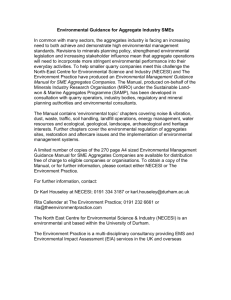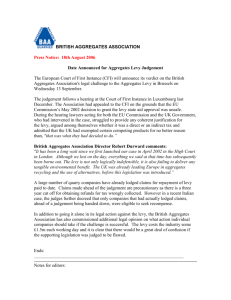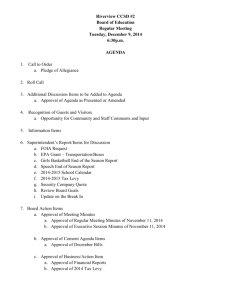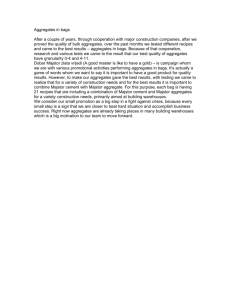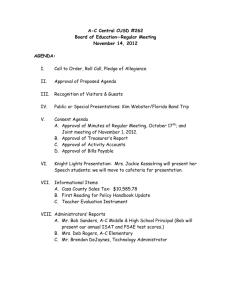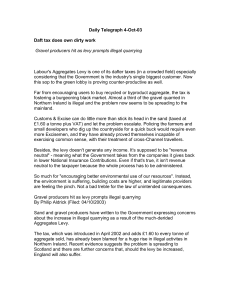BRITISH AGGREGATES ASSOCIATION
advertisement
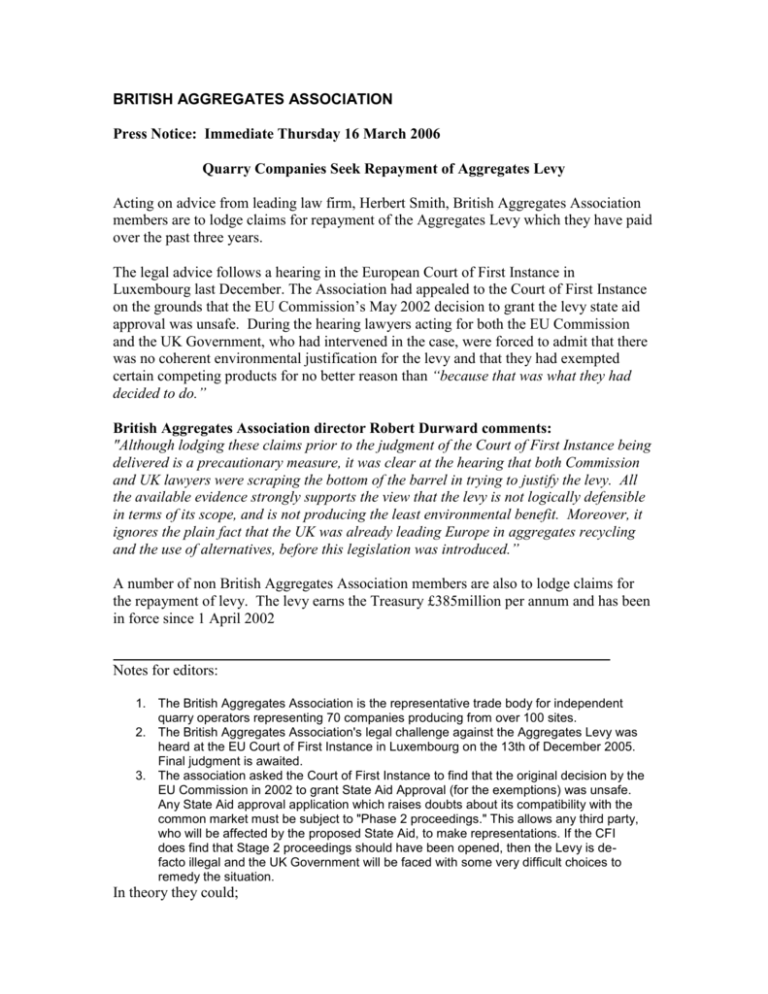
BRITISH AGGREGATES ASSOCIATION Press Notice: Immediate Thursday 16 March 2006 Quarry Companies Seek Repayment of Aggregates Levy Acting on advice from leading law firm, Herbert Smith, British Aggregates Association members are to lodge claims for repayment of the Aggregates Levy which they have paid over the past three years. The legal advice follows a hearing in the European Court of First Instance in Luxembourg last December. The Association had appealed to the Court of First Instance on the grounds that the EU Commission’s May 2002 decision to grant the levy state aid approval was unsafe. During the hearing lawyers acting for both the EU Commission and the UK Government, who had intervened in the case, were forced to admit that there was no coherent environmental justification for the levy and that they had exempted certain competing products for no better reason than “because that was what they had decided to do.” British Aggregates Association director Robert Durward comments: "Although lodging these claims prior to the judgment of the Court of First Instance being delivered is a precautionary measure, it was clear at the hearing that both Commission and UK lawyers were scraping the bottom of the barrel in trying to justify the levy. All the available evidence strongly supports the view that the levy is not logically defensible in terms of its scope, and is not producing the least environmental benefit. Moreover, it ignores the plain fact that the UK was already leading Europe in aggregates recycling and the use of alternatives, before this legislation was introduced.” A number of non British Aggregates Association members are also to lodge claims for the repayment of levy. The levy earns the Treasury £385million per annum and has been in force since 1 April 2002 Notes for editors: 1. The British Aggregates Association is the representative trade body for independent quarry operators representing 70 companies producing from over 100 sites. 2. The British Aggregates Association's legal challenge against the Aggregates Levy was heard at the EU Court of First Instance in Luxembourg on the 13th of December 2005. Final judgment is awaited. 3. The association asked the Court of First Instance to find that the original decision by the EU Commission in 2002 to grant State Aid Approval (for the exemptions) was unsafe. Any State Aid approval application which raises doubts about its compatibility with the common market must be subject to "Phase 2 proceedings." This allows any third party, who will be affected by the proposed State Aid, to make representations. If the CFI does find that Stage 2 proceedings should have been opened, then the Levy is defacto illegal and the UK Government will be faced with some very difficult choices to remedy the situation. In theory they could; 4. 5. 6. 7. 8. 9. a. make sufficient changes to the AGL to make it compatible with EC State Aid law; however, in practice this may be virtually impossible. b. abolish the AGL c. replace the AGL with a new and straightforward tax which does not seek to protect specific industries such as slate, cement, china clay, industrial minerals and sand for glass manufacture. However, this would not remedy the existence of illegal exemptions for the past and all the previously exempted industries would have to repay the full amount of state aid they had received with interest. An alternative to such a course would be for HMG to repay tax paid by nonexempted companies. Precautionary claims are now prudent because of a rule which prohibits the recovery of taxes paid more than three years ago. However the BAA legal challenge may preclude the three year rule being applied. Herbert Smith LLP is assisting companies in this process. Although HMG claims that the aggregates levy is an "indirect tax" it has a number of features which may make it difficult in practice for HMG to run a defence based on the argument that quarries have "passed on" the burden of the AGL Not only has the Levy failed to provide any tangible environmental gain, it has produced its own environmental problems. Levy exempt products are now being hauled longer distances and displacing locally sourced materials. This has greatly hampered the quarry industry’s ability to deal with its own by-products and there are now growing mountains of secondary aggregates appearing in quarries across the country The use of primary aggregates has not been reduced by the levy. In fact the only reason that the use of virgin aggregate has not actually increased has been the reduction in road building and repair. In 2002 the British Aggregates Association successfully argued that proposed changes to rules for estimating the weight of the moisture content of aggregate were unlawful. This concession has already saved the industry over £50million. The above information was given to Construction News as an exclusive. A copy of their article today is attached Contacts: The British Aggregates Association, PO Box 99 Lanark ML11 8WA Director – Robert Durward Executive Officer – Richard Bird Secretary - Peter Huxtable 01555 663 444 07776 298 347 01433 639 879 Herbert Smith LLP State aid and CFI issues – Craig Pouncey or Lode van den Hende Brussels Office – 00 322 511 7450 Precautionary claims to repayment issues – Derek Hill London office - 0207 374 8000 ENDS:
